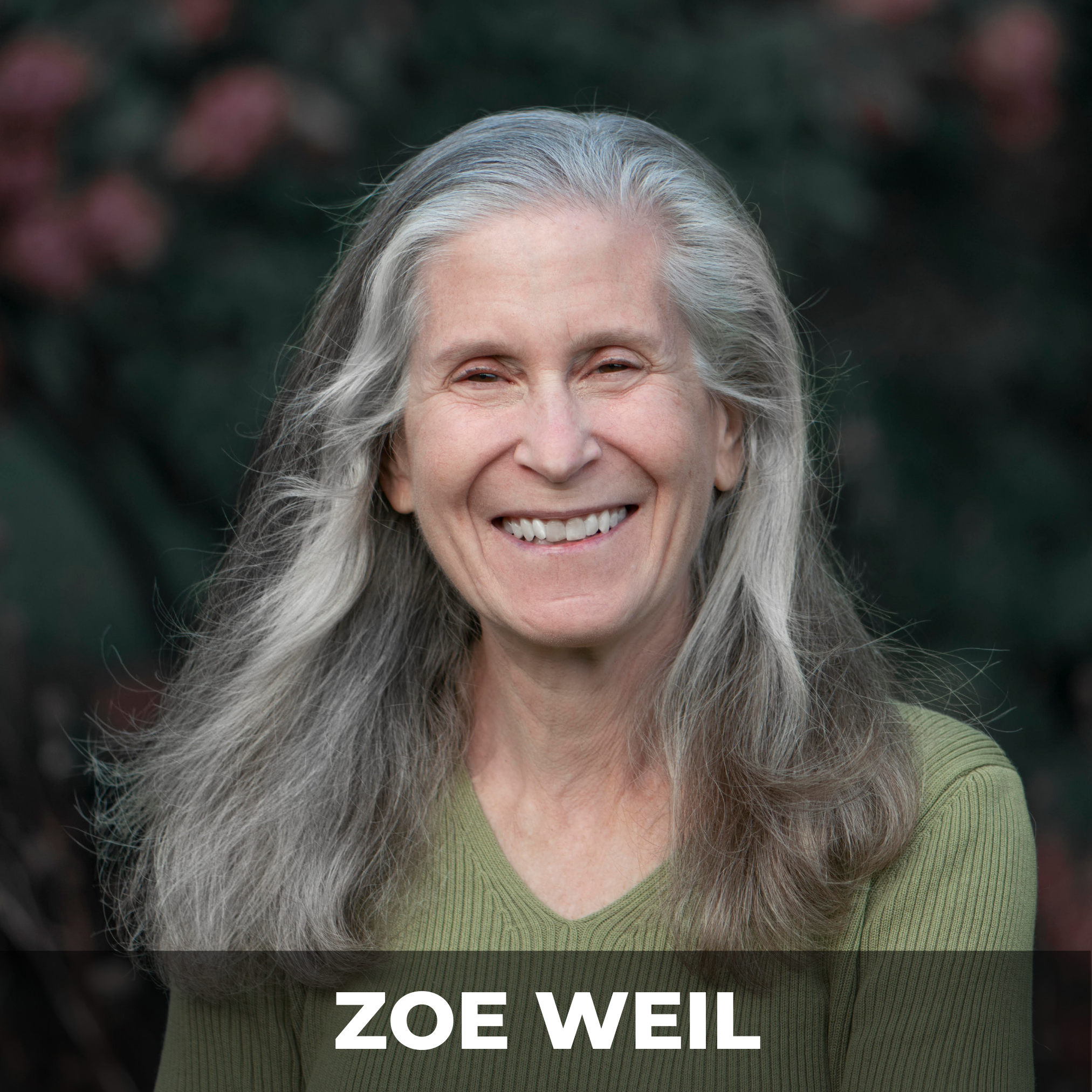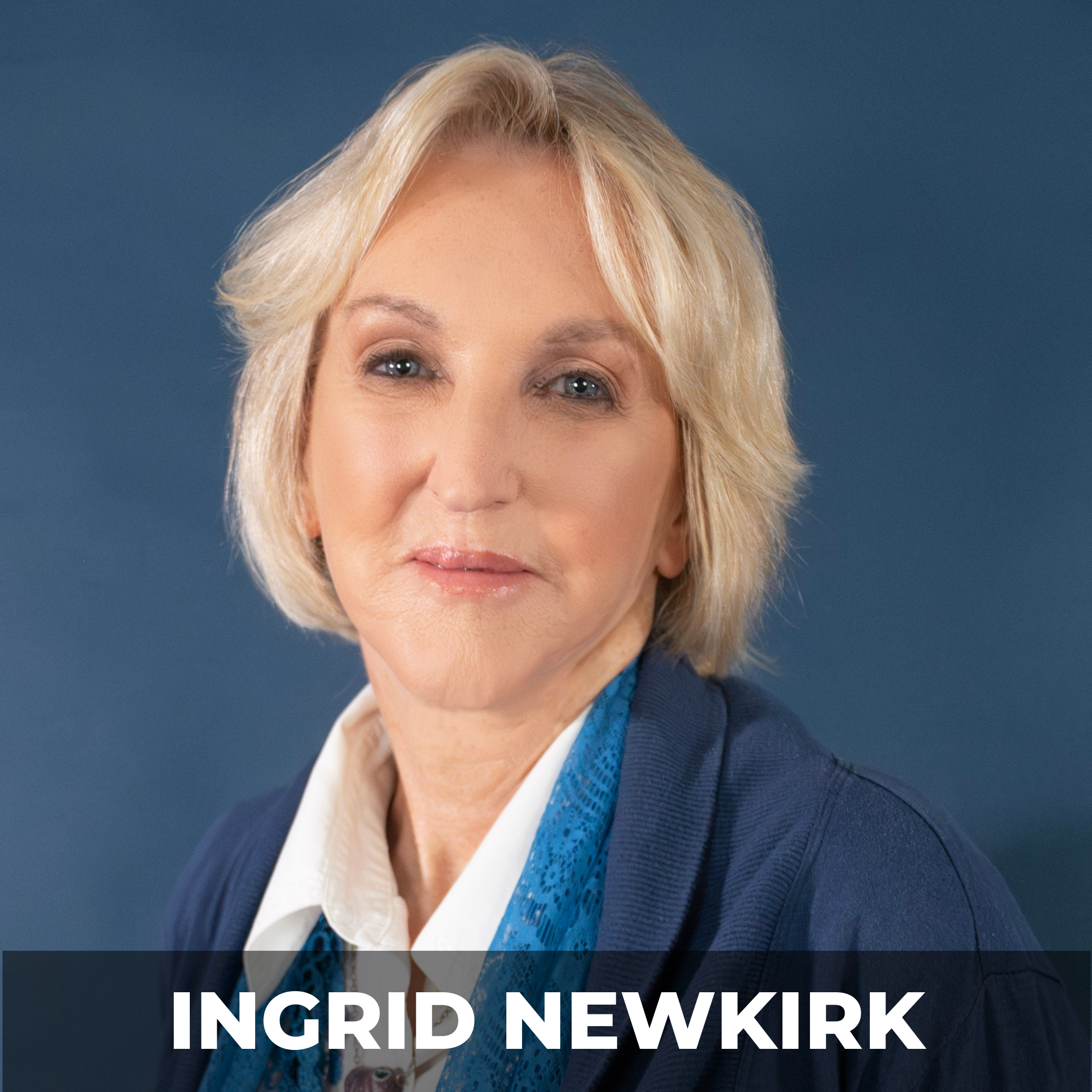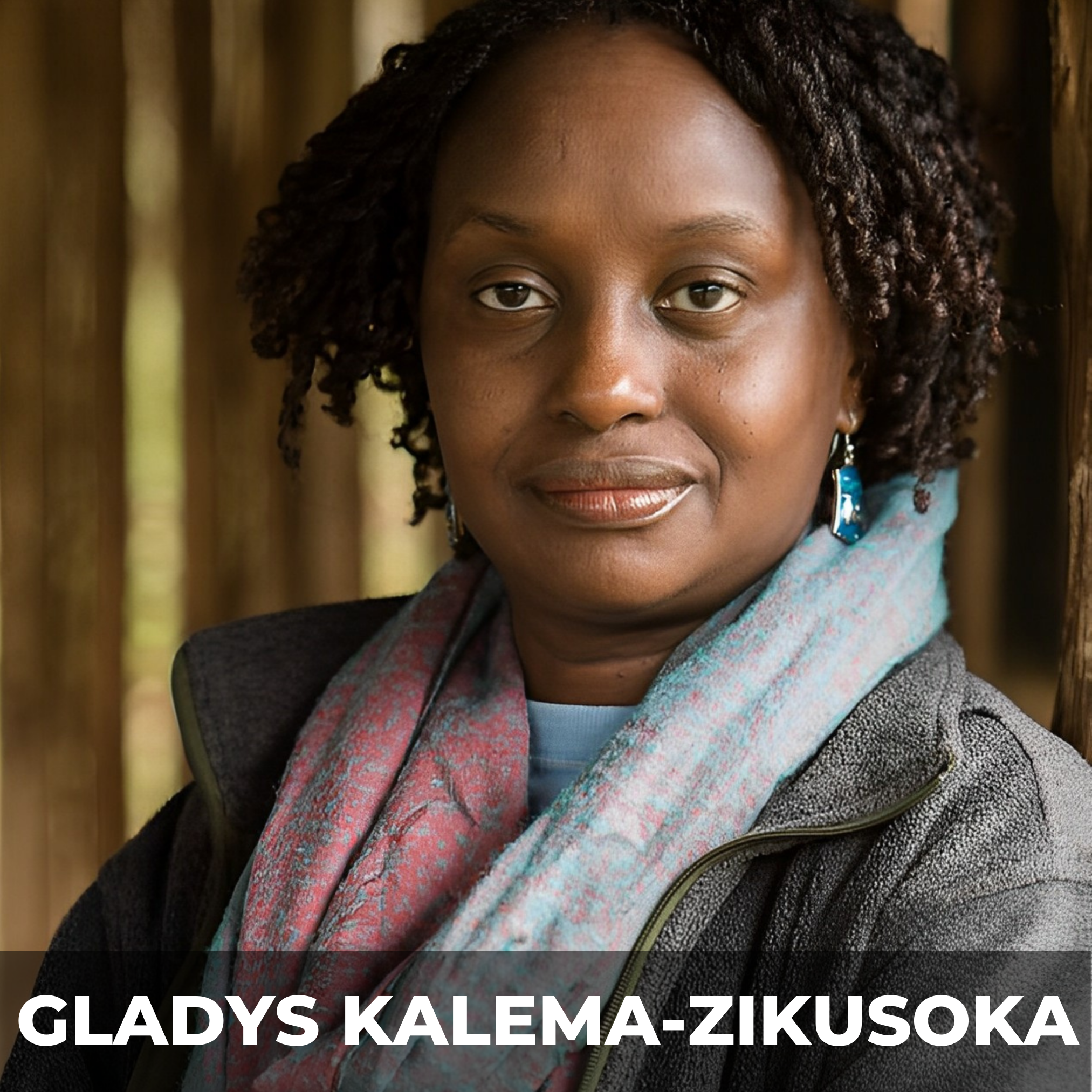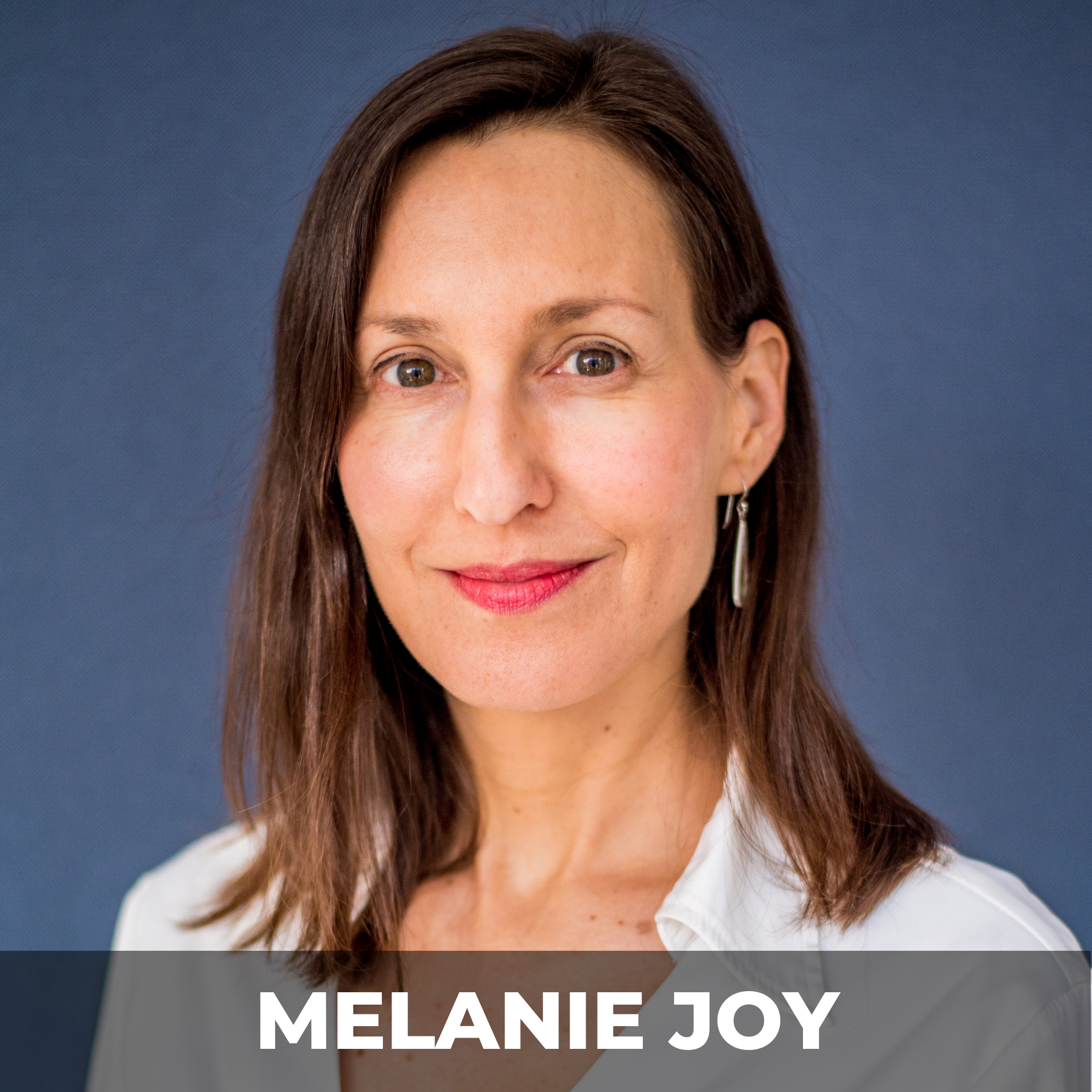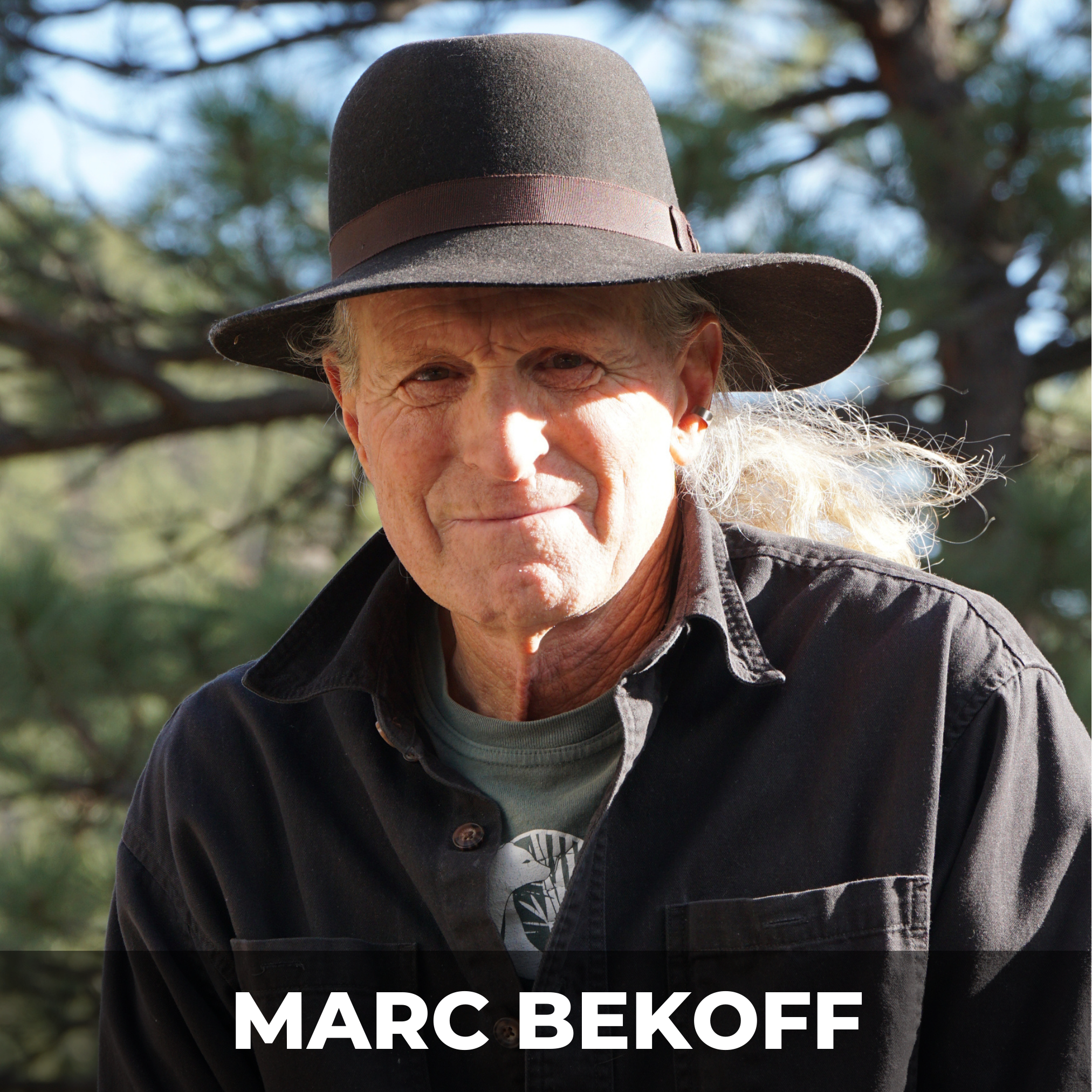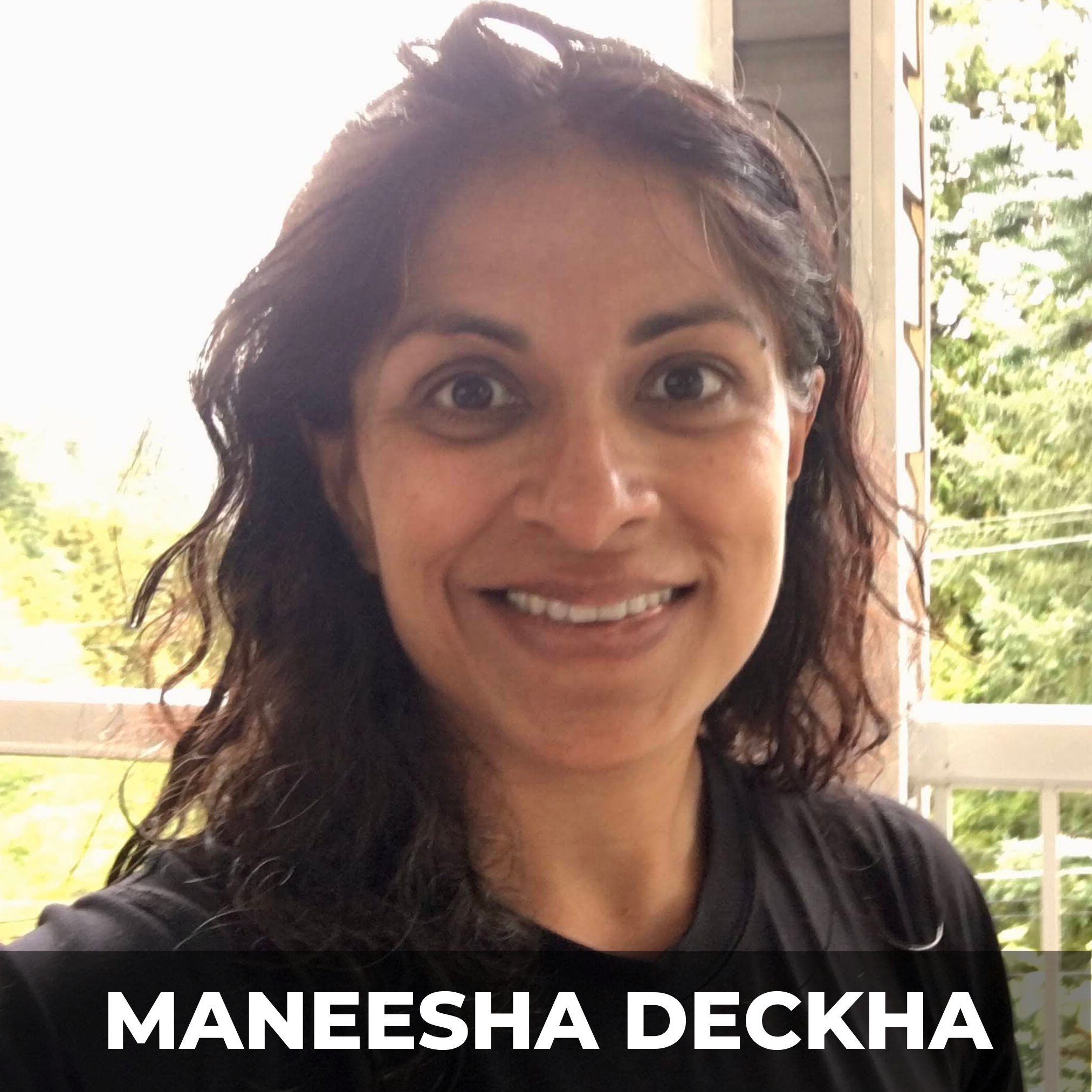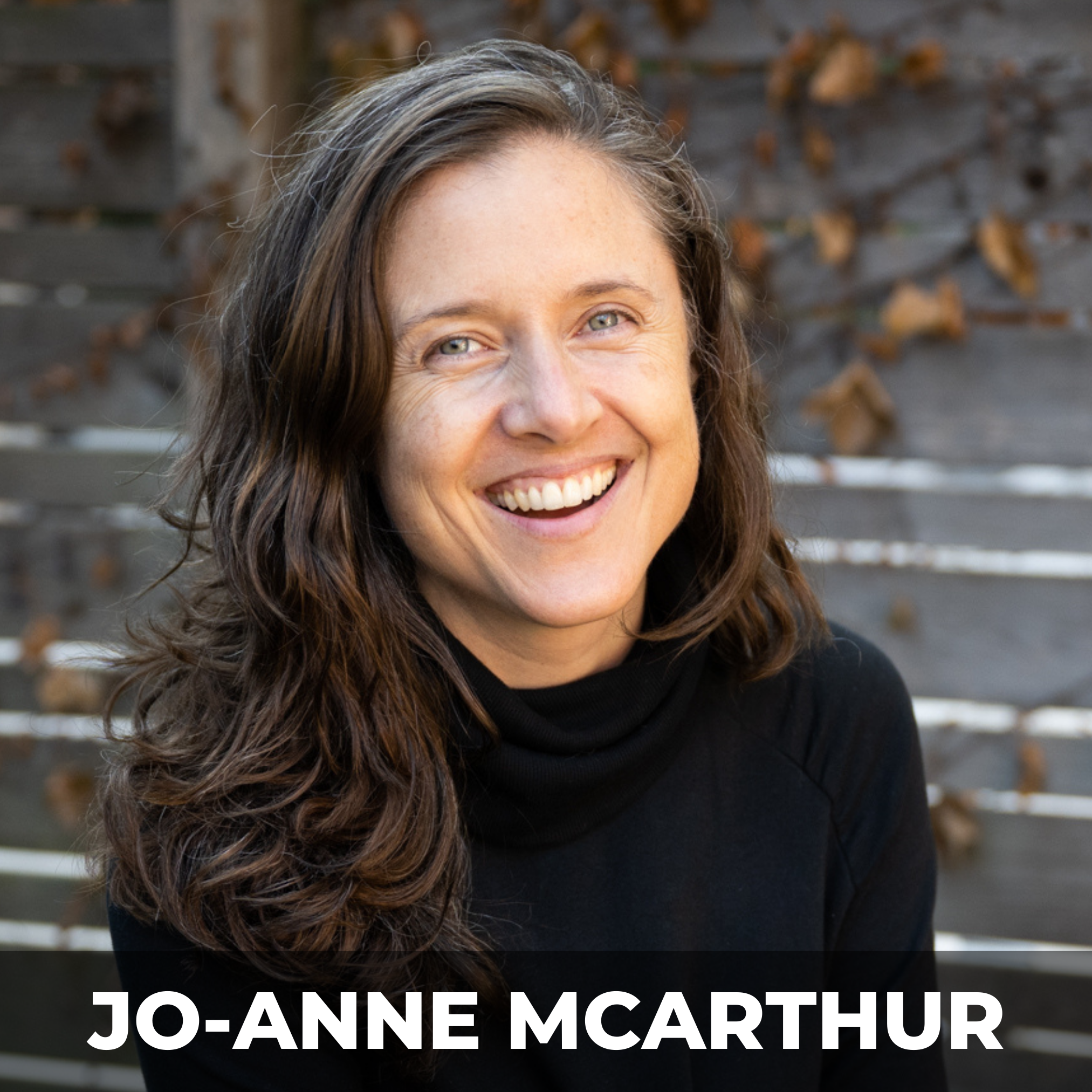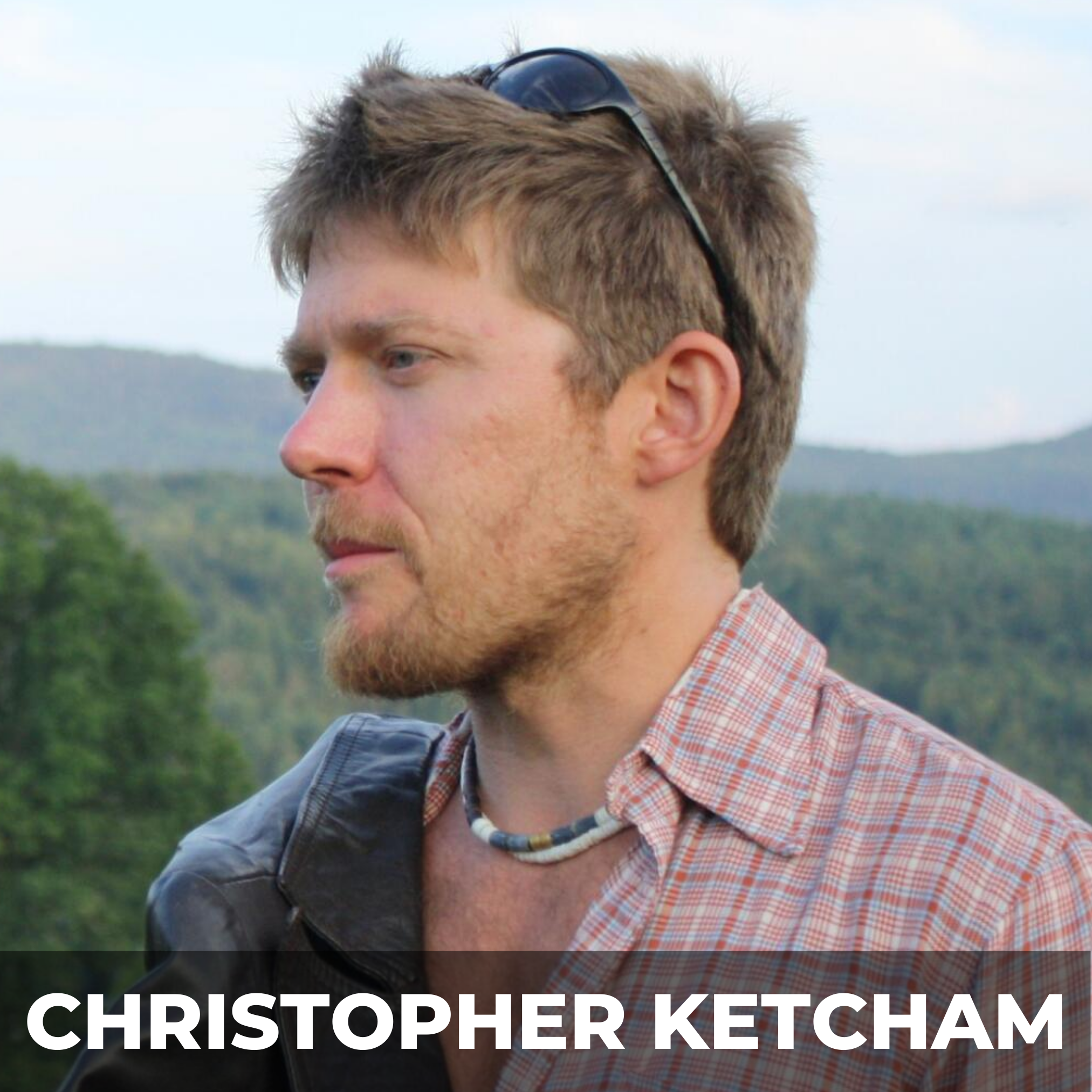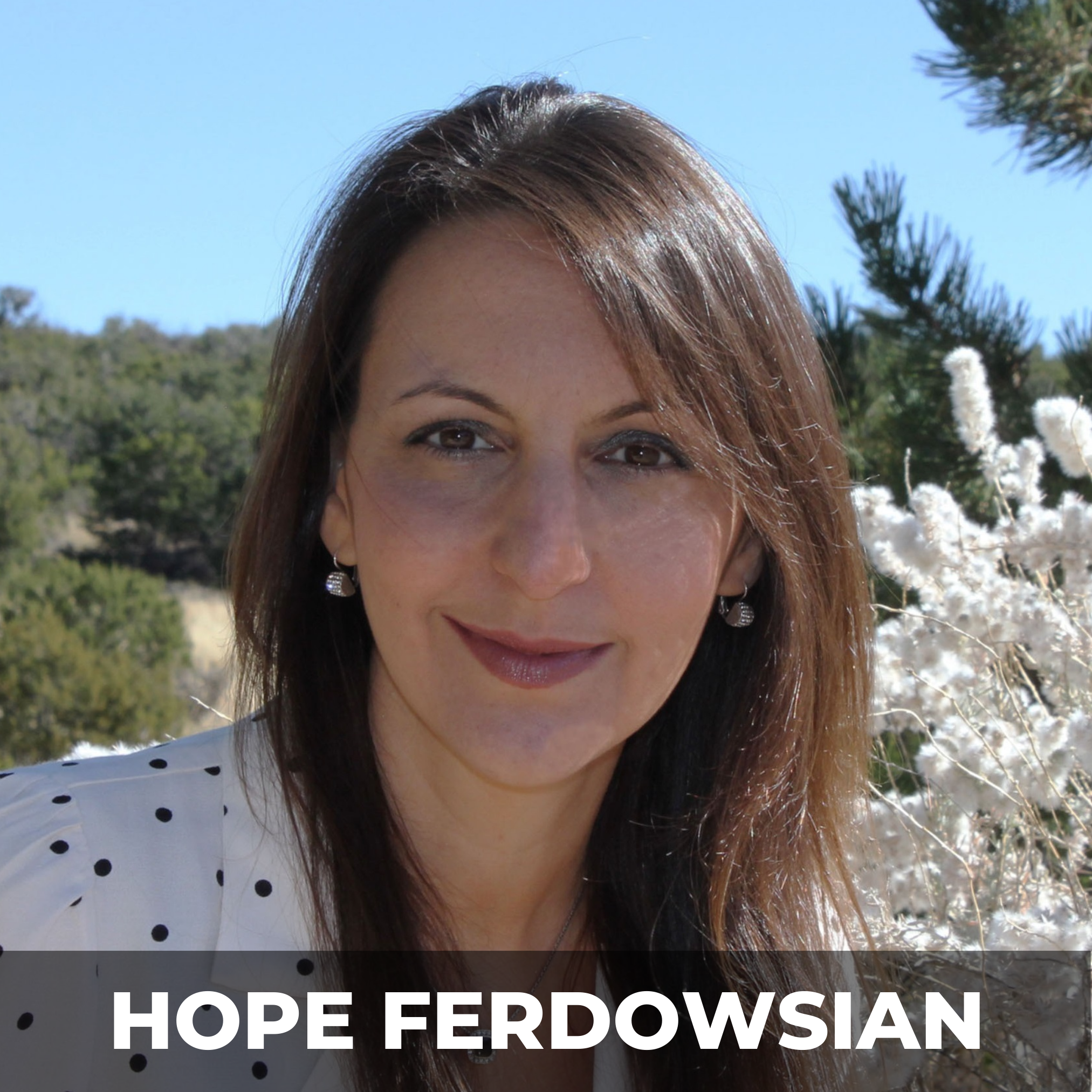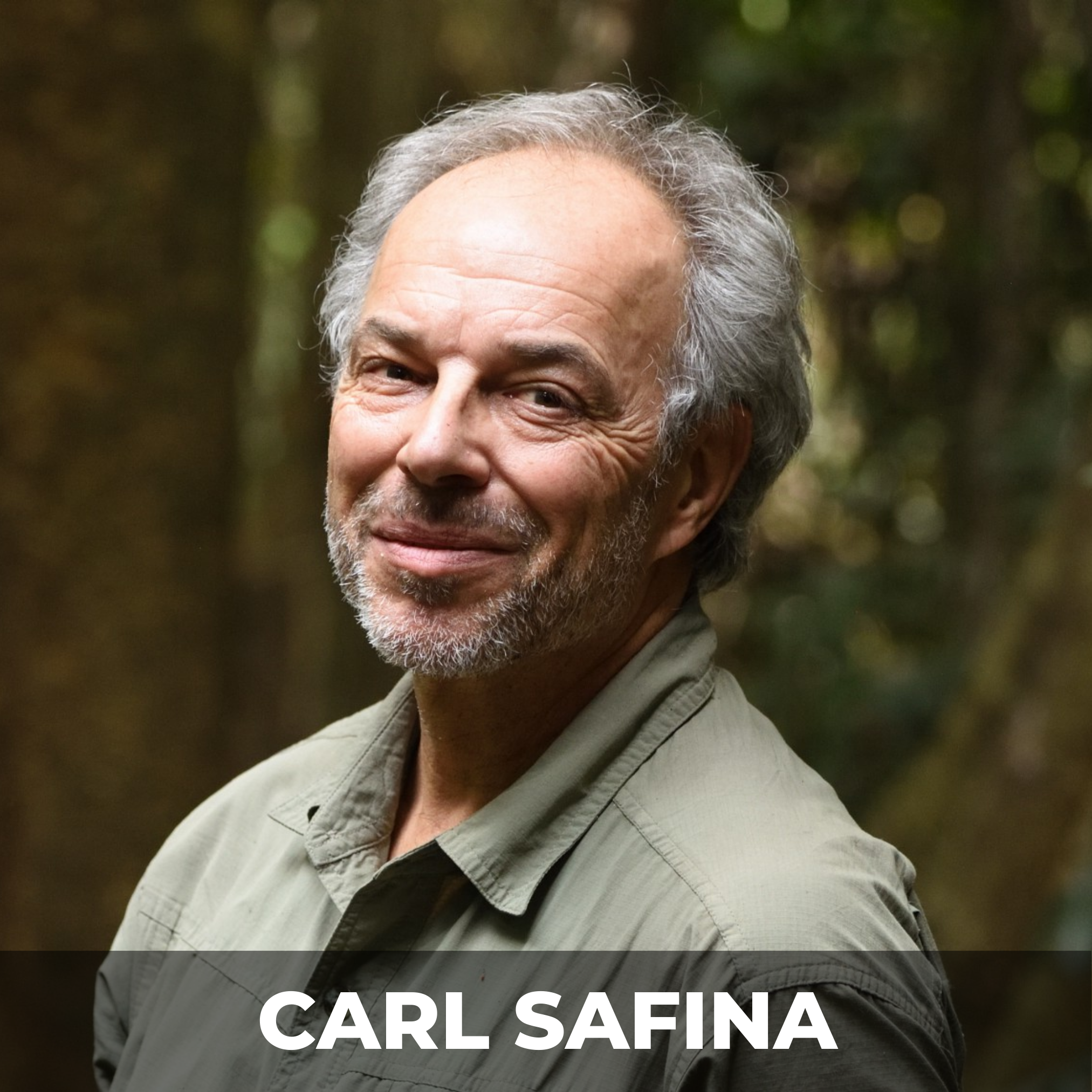Becoming Solutionaries | Toward an Ethic of Most Good and Least Harm
In this episode, we chat with Zoe Weil, co-founder and president of the Institute for Humane Education, about her pioneering work in the area of comprehensive humane education, an approach to teaching that draws the intimate links between human rights, animal protection, and environmental sustainability. We take a dive into Zoe's latest book The Solutionary Way, which explores how to use a solutionary lens to bridge divides and address the seemingly intractable challenges we face. Highlights include:
Zoe’s personal journey of co-founding the Institute for Humane Education in 1996, and the many programs and resources offered through the Institute;
The description of a “solutionary” as someone who transforms unjust, unsustainable, and inhumane systems for the most good and least harm, and how one can cultivate a solutionary mindset;
How to use a humane education lens to understand the connections between overpopulation, lack of reproductive autonomy, animal exploitation, and ecological degradation;
Zoe’s reflections on societal double standards around reproductive choices - how not having children is stigmatized while having children is the unquestioned default;
The purpose and joy of living in alignment with our values while simultaneously working in community towards system change.
MENTIONED IN THIS EPISODE:
-
Zoe Weil 0:00
A solutionary is somebody who can identify unjust, unsustainable, and inhumane systems and then transform them in ways that do the most good and the least harm for all people and all species and the ecosystems that sustain life. So solutionary is not the same as a problem solver. And the reason is because of this embedded ethical foundation of doing the most good and the least harm. So an engineer can solve the problem of damming a river or blowing up a mountaintop for coal removal, but they're not a solutionary. A solutionary is also not the same as a humanitarian. So humanitarians strive to relieve suffering and mitigate harm when it happens. And it's incredibly important that we be humanitarians. And yet humanitarians are not trying to address the root and systemic causes of that suffering and harm. So that's why we need solutionaries; solutionaries are people who are going to address those root and systemic causes.
Alan Ware 0:58
In this episode of the Overpopulation Podcast, we'll be speaking with Zoe Weil, co-founder and president of the Institute for Humane Education. We'll hear about Zoe's pioneering work in the area of comprehensive humane education, an approach to teaching that draws the intimate links between human rights, animal protection, and environmental sustainability.
Nandita Bajaj 1:28
Welcome to the Overpopulation Podcast where we tirelessly make ecological overshoot and overpopulation common knowledge. That's the first step in right-sizing the scale of our human footprint so that it is in balance with life on Earth, enabling all species to thrive. I'm Nandita Bajaj, co-host of the podcast and executive director of Population Balance.
Alan Ware 1:51
I'm Alan Ware, co-host of the podcast and researcher with Population Balance. We are proud to be the first and only nonprofit organization globally that draws the connections between pronatalism, human supremacy, social inequalities, and ecological overshoot. Our mission at Population Balance is to inspire narrative, behavioral, and system change that shrinks our human impact and elevates the rights and well being of people, animals, and the planet. And now on to today's guest. Zoe Weil is the co-founder and president of the Institute for Humane Education, where she created the first graduate programs in comprehensive humane education - linking human rights, environmental sustainability, and animal protection offered online through an affiliation with Antioch University. Zoe is a frequent keynote speaker and has given six TEDx talks including her acclaimed TEDx, The World Becomes What You Teach. She is the author of eight books, including her 2024 book, The Solutionary Way: Transform Your Life, Your Community, and The World for the Better. She holds master's degrees from Harvard Divinity School and the University of Pennsylvania and was awarded an honorary doctorate from Valparaiso University. And now on to today's interview.
Nandita Bajaj 3:11
Hi Zoe. It's so wonderful to have you here. This interview has been a long time coming.
Zoe Weil 3:17
Nandita, I cannot tell you how thrilled I am to be here. And Alan, it's so nice to meet you. I'm really excited about this conversation.
Nandita Bajaj 3:26
So are we. And you know, we want to start the conversation by thanking you for the tireless work you've done over the last several decades in helping to broaden and deepen the field of humane education, to include not only animal welfare, but also how that's connected more broadly with social and ecological justice. And I especially want to thank you for your leadership in creating the incredible humane education graduate program within the Institute for Humane Education, which you co-founded and are a president of. As a student of the program, I had the opportunity to use a system lens to understand how overpopulation is tightly linked to a lack of reproductive autonomy, animal exploitation, and ecological destruction among so many other issues. In fact, Zoe, I would not be at Population Balance today had it not been for the transformative learning experience I had through the graduate program in humane education, which I now get to pass on to others as a faculty member there. Full circle.
Zoe Weil 4:40
It's one of those things where you have a dream, and I had this dream of creating this program. And I didn't know that by fulfilling this dream, these amazing people would come not only into my life, but then keep spreading the dream and growing the dream and expanding what that dream could be. So for me, it feels like equally an honor and a privilege to be here and get to talk to the executive director of Population Balance, who is bringing humane education into another sphere and having such a huge impact. So I am extremely grateful to you.
Nandita Bajaj 5:22
Oh, thank you Zoe. That means a ton. And we can jump right into your incredible experience and your journey kind of leading up to the creation of humane education. So most of our listeners might have heard us refer to the term humane education. Let's begin with the definition of comprehensive humane education, which you've helped pioneer, and also if you can share your personal journey that led you to co-found IHE, the Institute for Humane Education in 1996.
Zoe Weil 5:56
The definition that we use at the Institute for Humane Education is that it is a field that explores the connections between human rights and environmental sustainability and animal protection with the goal of preparing people to be what we call solutionaries, who can identify unsustainable, unjust, and inhumane systems, and then transform them in ways that do the most good and the least harm for everyone. And by everyone, I mean, all people and all species and the ecosystems that sustain life. So that's the definition that we use.
And my own journey to being a humane educator was a little bit circuitous. And I would say that the starting point for me in really identifying the power of this field, and the capacity for this to become my life's work, as happening in 1987. So I was in graduate school, and I was looking for a summer job. And I found a program at the University of Pennsylvania that offered week-long courses to middle school students. And I pitched a whole bunch of courses, and one was on animal issues, and one was on environmental issues, and one was on media literacy.
The animal issues course was the second most popular of the sixty that were offered to the students. And that had nothing to do with me. It was the topic. Kids love animals, and they wanted to know what was happening to them. So I taught this course. And in the middle of the week I taught about product testing on animals. So that's where anything from oven cleaner to cosmetics and personal care products are dripped into the eyes of conscious rabbits and force-fed to animals in quantities that kill, and smeared onto their abraded skin. And one boy went home that night, and he made his own homemade leaflets. Now, this was in 1987. He did not have a personal computer. He hand wrote his leaflets. And he came back to class the next day, and he wanted to hand them out, and not to his fellow classmates. They'd already learned about this. He wanted to hand them out on the street, and this was in Philadelphia. So while the rest of us were having our lunch, he was standing on a street corner handing out his homemade leaflets. He had become an activist overnight.
And after this course was over, I realized this incredible power of humane education of teaching about issues and providing means to make a difference. And it was so transformative for these kids. And years later - many, many years later - one of the boys who was in that class, he went on to work for the mayor of New York on HIV and AIDS issues. He still works for the mayor of New York, but this is five mayors later. And I was going to be in New York speaking at an event that Jane Goodall was also speaking at. And because that was such a big honor and so exciting, and I hadn't seen him in years, I invited him to come.
And I was introducing him to some friends afterwards. And I said, this is David. He was in the first humane education course I ever taught, and before I could even finish my sentence, he interjected, That course changed my life. And it changed my life too, right? It changed his life. It set him on this path. It changed my life, because I realized this could be my life's work. So over the course of a number of years, I created a humane education program in the Philadelphia area. We went into schools. We did assembly programs. We did after school courses. We did classroom presentations. We were reaching about 10,000 kids a year. But that's just a drop in the bucket. Right? And they were only getting maybe just an hour long presentation. What would happen if humane education were actually integrated into schools?
And so, in 1996, I co-founded the Institute primarily to prepare other people to be humane educators and created the graduate programs that you graduated from and workshops and, so much more, you know, resources, we’re around the globe, and we're working with teachers and schools on six continents and integrating what we more refer to as solutionary learning when we go into schools than humane education. But it's learning that prepares young people to solve the problems that they face in their schools, their communities, in their countries in the world.
Nandita Bajaj 10:32
That's a powerful story. I'm so glad that moment in time informed you of what your career was going to be. Because now look, all of the different people that you've inspired and the tens of thousands of lives that you've changed through these programs. And your decision to create a program for educators was such a good strategy, because you're basically teaching the leaders who can then have this multiplier effect by bringing that same level of education into whatever field they're working within - whether it's educational institutions, or the kind of education we're doing, you know, at Population Balance, which is mainstream behavior change and narrative shifts.
Zoe Weil 11:15
Yes, well, education is the root system underlying all other societal systems. So when we're thinking about where can we find leverage points and where can we have the biggest effect, education seemed obvious to me. The other thing I will say about that is that I liked being an educator myself. I enjoyed educating and writing, and I was good at it. So that is the magic sauce for everybody who may want to be a solutionary, which is find the problem you're interested in solving. What are you good at? What do you love to do? Find where the confluence lies between those and your life is golden, right? So I hope everybody who's listening can think about those questions for themselves and find their path.
Alan Ware 12:09
One thing we greatly appreciate through that systems lens of humane education is throughout your career you've been refreshingly outspoken and honest about the harmful impact of population growth and overpopulation. What experiences and ideas inform those views? And what kind of reception have you had in speaking and writing about population issues through the decades?
Zoe Weil 12:34
I grew up in the 60s and 70s. So population was an issue of that time. And what I don't understand is how population isn't an issue for everybody, why everybody's not thinking about it, because it's just math, right? We live on a finite planet. We cannot have an endlessly growing human population and not have impacts. And back then in the 60s and 70s, you know, the big concern was famine, that we were going to not have enough food to feed a growing human population. And we solved that problem, and I'm doing the air quotes, which you can see but the listeners can't. We solved that problem through very environmentally destructive means. I never even understood that as the primary problem. It just seemed to me like, we can't take over this Earth. I mean, there's a limit to how much we can use. And this is just obvious.
And so one of the things that has been shocking to me is that we went from being deeply concerned about overpopulation to being deeply concerned about population decline, because there may not be enough young people in the workforce to be able to pay for elderly people who are retiring. And so the headlines are all about making sure that more people have babies. And why do we have to go to that extreme? Why do we have to choose these sides, when we can see that there are problems that arise from having an elderly population. There are absolutely problems that arise. How do we solve those problems? Instead, we present them as sides that we have to take, and then we argue about them and we debate them, instead of actually looking to really what are the solutions that will do the most good and the least harm for everyone. Again, for people for sure, but also to ensure that we have a thriving environment.
You know, I remember reading the book, World War Three by Michael Tobias that came out in 1996. It was actually a required book in the graduate programs for many years, and you know, it was a seminal book at the time on population. And we taughtabout it. It was deeply embedded into our programs. And there was never any pushback. And I also wrote and performed a one woman show for a number of years and Nandita, I know, you've read the sketch that I wrote, where I included this issue. So I am somebody who's always been concerned about population who did choose to have a biological child. And I did that knowing that I was bringing a child into an overpopulated world, knowing it really didn't align with my values, but this desire to make another human being with my husband and to be pregnant and to give birth and to nurse a baby, it was that biological drive. I had it. And I did have a biological child. He is now almost 31 years old.
And in all of these years, not a single person has ever asked me, Why did you want to have a child? Nobody has ever asked me that. But if you don't want to have children, you're regularly asked why not, as if something's wrong with you. So that's what I talked about in my one woman show, because it's so striking that there would be something wrong with you that you may not want to bring a child into an overpopulated world, that you may not want to lose so much of your time and your sleep and your money and your energy and be that vulnerable. I mean, it seems perfectly natural not to want that. But it is interesting that I didn't get any pushback from that either. And we'll see what happens with my new book because I do have a section in the new book about population solutions. And we'll see if I get any negative feedback from it, but so far I have not.
Alan Ware 16:34
Well, and you did make that decision to have a child very conscientiously, it sounds like knowing the cost and benefits. And you had one, not 2,3,4,5. So if everybody can make it so conscientiously, that would be amazing.
Zoe Weil 16:51
Well, you know, one of the things about making that decision is it humbles me, because I made a decision that I consider selfish. One of the things I find fascinating is that people who choose not to have children are often accused of being selfish. And it's fascinating to me, because I don't think there's anything more selfish than, like, I want to reproduce, myself with my partner and have a little me. And it's really an interesting twist. So it felt to me like quite a selfish decision. Not that you don't have to do incredibly selfless things as a parent. You absolutely do. But the drive is not a selfless drive. So the reason it humbles me is because I don't understand when people learn about factory farming and the incredible cruelty and suffering that is perpetrated on animals for food, why people don't just say, Oh, yeah, I'm done with that. I'm going vegan now. I just learned that. I'm never eating that again. Now, I did not do that. It took me years of being a pescatarian, and then a vegetarian, and then I became vegan 35 years ago. So I did have my own process for doing that. But this humbles me, because I made a really selfish choice because of my desires. And I understand because of that, that other people make different choices to fulfill their desires, and they let those desires eclipse their values just like I did. So it's helpful for me to actually have experienced that, in order to become less judgmental of other people.
Nandita Bajaj 18:36
That's such a refreshingly candid take on so many different issues, and also how there are so many competing impulses - from tradition, from expectations from family, from wanting to belong - and so many of those factors influence our actions. So I really appreciate how carefully and, you know, with so much nuance you've thought about these things. And obviously, you are an embodiment of humane education thinking and applying that lens to not just educating other people, but also looking from within that lens at your own behaviors. And we really appreciate that.
And you mentioned your new book, The Solutionary Way, and how you have actually centered population within that, which again, we are so thrilled by. In fact, when I was doing my graduate program at IHE, and you know, my experience of talking about population. It was so obvious to me that we were overpopulated. I mean, I grew up in the most populous nation, so it was a very visceral experience for me, but then not being able to talk about it because it was a taboo. And I understand why it's a taboo, but also the taboo is not based so much in scientific and mathematical truths, and we need to find ways of addressing the issue. I was flabbergasted by the reception of my views at IHE. When I brought up the topic of population, Mary Pat Champeau, the director of education you know, to whom I owe so much of my inspiration, just absolutely incredible person. She just with open arms was like, absolutely,. We need to talk about this. And we welcome controversial issues at IHE. This is what we're about is taking difficult issues and making them easy to address and talk about. And, you know, my experience in looking at so many different institutions, talking to so many graduate students, is that population and demographic concerns are literally being wiped off the curriculum because of the controversy around it. So to me, it was so refreshing to have an institution that is so progressive, that is so justice-oriented and open to talking about one of the most controversial issues.
And to then see it appear in your new book as a central piece was, again, really inspiring. So let's talk a little bit more about your book. In your work as a humane educator, you've emphasized the importance of educating people to become solutionaries, a word that you've used several times today. And your new book is called The Solutionary Way. How would you describe a solutionary? And what is solutionary thinking?
Zoe Weil 21:45
So a solutionary is somebody who can identify unjust, unsustainable, and inhumane systems and transform them. So I referred to that earlier, and transform them in ways that do the most good and least harm for everyone. So it's a simple definition. And somebody who's listening could be thinking, Why do you need a new word for that? Isn't that a problem solver? So solutionary is not the same as a problem solver. And the reason is because of this embedded ethical foundation of doing the most good and the least harm. So an engineer can solve the problem of damming a river or blowing up a mountaintop for coal removal, but they're not a solutionary. A solutionary is also not the same as a humanitarian. So humanitarians strive to relieve suffering and mitigate harm when it happens. And it's incredibly important that we be humanitarians. And yet, humanitarians are not trying to address the root and systemic causes of that suffering and harm. So that's why we need solutionaries. Solutionaries are people who are going to address those root and systemic causes. So that's the reason for the made up word. And solutionary thinking is comprised of many forms of thinking, but primarily critical thinking, systems thinking, strategic thinking, and creative thinking. And even though that kind of thinking does not happen sequentially, critical thinking is the foundation - that without critical thinking, we can't really be good systems thinkers. Without critical thinking and systems thinking, we can't be good strategic thinkers. And then when we apply creative thinking to all of that, then we are able to come up with innovative solutions or innovative ideas about spreading some other solutions that are already in use to a different sphere or different arena.
Alan Ware 23:44
It does seem so important to have teachers in this process modeling that critical thinking and the systems thinking as kind of the foundation for a more effortful way of thinking. I think most of us don't want to expend the energy, or a lot of adults certainly don't. And we go towards the low energy, more certain pronouncements, judgments, decision-making, and to start that process at a younger age of true critical thinking, and the systems awareness that open both of your eyes and my eyes, whether it's ecological systems blindness, or energy blindnesses. There are all kinds of blindnesses we all have. We all, have so much ignorance about systems that we often then interfere in, such as natural systems, assuming that we know all the consequences beforehand when we often don't. But to strive for that kind of systems level thinking is so important, so critical. And I greatly appreciate that part of your framework.
Zoe Weil 24:51
Thank you. Yeah, it's very challenging, right? Where I live, 100 years ago, or let's say 150 years ago, people would know where their food came from, they would know where probably their clothing came from. And we have no idea. And that's because of these interconnected systems - our economic system, our political system, our energy system, our production system, our defense system. They're so complex, and they travel the globe. And it's difficult, because while we can get more information now, it's a lot of work to get that information. And it's so much easier not to know for most people like why bother knowing, you know. I'm just going to get what I get.
Nandita Bajaj 25:37
And what do you see as some of the primary challenges of being a solutionary, in addition tojust the complexities and not wanting to expend the kind of energy to inform yourself, to have to think through every single action.
Zoe Weil 25:51
So I would say that that is the one of the two big challenges is it takes effort and work. And people are tired and busy. And to the degree that people have extra time, they want to be entertained and they want pleasure, not pain. And to go on this journey requires a lot of learning and commitment and motivation. So that's a challenge. The other challenge is that to be a solutionary means to believe that a better world is possible, to believe that we can build bridges with others and collaborate and cooperate to create change. And we live in a culture that is very polarizing and divisive. And we don't tend to want to build those bridges. We are pushed to choose sides all the time. We are pushed to think in either/or ways as opposed to thinking in solutionary ways. So to think in a solutionary way means to not accept the either/or; we have the capacity to think in more complex ways. We have the capacity to realize that there are a bunch of problems and they're interconnected, and we can solve them. And that kind of solutionary mindset actually doesn't seem to come all that naturally to most of us, that we are much more inclined to think in either/or terms and to choose sides than we are to say, Well, let's solve this together. How do we do that?
Alan Ware 27:26
Yeah. And yet you found despite those challenges, a lot of joy and satisfaction in being a solutionary. And I wonder if you could share some of that with us.
Zoe Weil 27:36
I'm so glad you asked that because I was starting to think, Wow, people are gonna listen to this and not be interested in being a solutionary, because it's a lot of work. But here's the thing. So living deeply aligned with one's values, making a positive difference in the world, and being connected to amazing people, that is where one lands if one goes on this solutionary journey. So to the degree that it's challenging and it takes work, yes/and - which is one of my favorite improv comedy rules, yes/and - the outcome is going to be a meaningful, purposeful life, where you contribute, and you feel the incredible joy that comes in making a difference.
And, you know, Nandita I already sort of referred to this, but I did not expect when I co-founded the Institute for Humane Education thatit was going to just give me this community of amazing people. It wasn't like, I went into it to find a community of amazing people. I went into it because I had an idea and I had a vision, and I thought it could work. And now I'm just surrounded by amazing people. Who doesn't want to be surrounded by amazing people? People who are positive and strive to do good and are genuinely brilliant, because they have learned to think in these complex ways. I mean, it's pretty great. So hopefully, if anybody is thinking, I'm not getting that book, and I'm not going on this solutionary journey is now thinking like, I can't wait to get that book and go on the journey.
Nandita Bajaj 29:19
Yes, I think the power of what you just shared, the power of living in alignment with one's values. Sometimes, you know, there's this debate and again, it goes back to your either/or thinking. Is it individual change? Is it system change? Why do we have to compete between the two, even if somebody says, Well, all of the efforts that you're engaging in, in your little life of being aligned with your values and trying to be a minimalist, or trying to do all of the things that lower your impact on the planet, well, they're kind of meaningless, because there's 8 billion of us and not everybody's living like you. So why bother? And the answer is what you just said, because it's joyous to live in complete alignment with your values. We don't have to. Of course, we want to do both. We want to live in alignment, and be contributors to larger system change. But they don't need to be mutually exclusive. We can do both.
Zoe Weil 30:19
Of course, and to the degree that we don't at least strive to some degree to model our message is the degree to which others may not take us seriously because they perceive us as hypocrites. So these are both/ands, not either/ors and most of life is a both/and and not an either/or.
Alan Ware 30:39
And that community aspect, you talked about the community of solutionaries seems so powerful. If if we really are a combination of the five people we most hang out with, as I've heard, or the alienation, the loneliness, the disconnection a lot of people are feeling in the modern world, to have a sense of integrity and purpose with a group of people solving problems is hugely powerful, which sounds like you felt in a big way.
Zoe Weil 31:06
Absolutely. And the other thing I would offer people is that we're all going to die. And hopefully we die with as few regrets as possible. And what is going to have mattered? What's going to have mattered for most of us, is the love we shared and the ways that we can feel that we did well in the world. And by well I mean we did good.
Alan Ware 31:30
So one activity that you talk about in the book is the true price activity And that seems like a really powerful tool to me when I read that about addressing widespread lack of understanding about complex social ecological systems involved in our every consumption decision. Can you give us an overview of how that works?
Zoe Weil 31:51
Sure. And it's perfect that you asked it after what we've just been talking about. So the true price activity is humane education activity in which we look at an everyday item. And it could be anything. It could be bottled water. It could be a cell phone. It could be a fast food burger, could be an item of clothing. And we ask a series of questions. And the first question is, What are the impacts of this item from the original resources, to production, to transportation, to use, to disposal - both positive impacts and negative impacts on us as individual consumers, on other people, on animals, and on the environment?.So that's the first question with a lot of embedded questions.
The next question we ask is, What are the systems that perpetuate this item that make it so commonplace? And the next question we ask is, What alternatives would do more good and less harm and, if there aren't any good alternatives, what systems would need to change to make alternatives possible and ubiquitous? So that's the true price activity. It's a really fascinating entryway for a solutionary because you're looking at something close to home, right? I'm looking at this shirt that I'm wearing, or I'm looking at whatever I'm eating, and I'm really learning about that one thing. And while it, of course, takes energy and research and investigation, it's fascinating to learn about these impacts, and to see there's a lifecycle of anything that we use and its impacts on others.
And then we have the opportunity, after we have learned all this, to take the next steps. So the next steps would be thinking, How do I want to change now that I know this information, or this is the introspection piece, is we inquire, then we introspect. And then together that allows us to take the next step to live with more integrity. And integrity feels good, right? Integrity just means you're living aligned with your values. And that just plain feels good. So for all the effort it takes, in the end, there's a kind of peace that we can experience when we take those steps.
Alan Ware 34:15
Yeah, I love how it's such a good activity for internalizing or making people aware of all of the external costs of every decision we make. And we've talked with ecological economists about the negative externalities of everything we do - the environmental pollution, the social exploitation, and capitalism, especially at the global level, hides so much of that from us at the scale and complexity of our market decisions and interactions. So just to, take that veil off the kids' eyes and have them see this pencil, you know, what tree did this come from? Where was the paint? Where was the lead, the metal used for the eraser. It's just enormously complex, involving so many people. It also gives you some appreciation for how utterly dependent you are on all of humanity, and that you should think about those relationships and how those people who did that for you are being treated in the process, and all the nonhuman nature too. So I really just love the powerful simplicity of that activity, and how interdisciplinary it could be right? You could bring it science and economics and politics and social movements and nature. And it's just hugely powerful. And I like that you bring in the not only the 'what is' in terms of the externalities, but the 'ought', once you see this system is no good. This system is exploitative and destructive. How can we change this? What can our decisions be to make this better? So yeah, it's just a beautifully powerful and simple activity.
Zoe Weil 35:50
Yeah, it's simple in that I could explain it in just a couple minutes. And it could also be somebody's dissertation, right? And our choices, while they absolutely have impacts right? Why are there so many plant-based milks in supermarkets now? It's because of consumer choice. Some people made that decision for the animals. Some people made that decision for their health. But isn't it great that they're all of these options? And that's through individuals making that decision and entrepreneurs creating those different products. At the same time, if we get hyper-focused on our personal decisions, we might be neglecting the ways that we could actually be influencing those systems. So this is a both/and too. And, you know, I would say that I was probably more focused on my personal purity in my 20s and early 30s than I am now. And that's partly because of the complexities and wanting to expend more energy on the system changing. And I've cut myself some slack. And, I think we all need to sort of find this sweet spot where we hold ourselves accountable. We don't just say, Oh, it doesn't matter so I'm not going to do anything. But we also cut ourselves slack so that we're not so focused on this personal purity that we actually could be turning people away.
I remember being at a restaurant. And I was at a conference, and a couple of us were there who were speakers who are vegan. And it was an animal welfare-ish conference. And the restaurant didn't have anything on the menu other than french fries that was vegan. And I was sitting at one end and there was another woman sitting in another end, and I was gonna get some french fries. And she yelled across the table, and this is a big table full of people who've organized this conference. And she yelled across the table, Zoe, those french fries were probably cooked on the same griddle with the lard. And I just thought, You realize that everybody has just heard you and now thinks vegans are crazy. And now thinks like, I would never want to be like that. And so you know, it's so important to just be aware that what does the most good and the least harm - this principle - is very complex. It's not just your personal purity. What does the most good and least harm in some circumstance could be very different from what you thought, because you're looking through this lens of people, relationships, the environment, the whole big picture, and you're making a decision as the best decision you can make in that moment.
Nandita Bajaj 38:38
I've always loved that slogan ever since I heard it, because it's exactly what you're saying, that the finding the sweet spot of living as closely in alignment with your values as is possible in a given situation, while also not minimizing the impact that you can have in making such choices in your relationships and how people perceive the kinds of actions you're taking and in other bigger changes you can lead to. I remember we had a conversation with an ethicist just a few episodes ago, Travis Rieder, who used ethical language to describe exactly what you're saying. And he said, an ethic of conscientiousness, rather than an ethic of purity. And literally what you just described, which is, if we were truly conscientious about all of the different ways in which we were having an impact, and not so concerned about being perfect, which is not even a possibility in a world of such deep interconnection with 8 billion people and billions of nonhumans. Again, it takes the pressure off of being this perfect individual. And it, I think, just makes you more accessible to people as well. The restaurant example is so good, because, yeah, in that situation, there's absolutely nothing you can do.
And like I go to restaurants sometimes, and they say no animals were harmed for the creation of this business. And I say, Well, it's a vegan restaurant, but you cannot make that claim, because our very existence ensures that animals had to be harmed. The very fact that that business exists in that habitat that used to belong to another family of nonhuman beings means that animals were impacted. So, you know, I think in that way what you just described is a much better way of going about life, because implicit in our existence in our everyday choices we have to face into the fact that we are causing harm, and then move towards a future where we're causing less harm and less harm incrementally. And that is so much more achievable and accessible and also justice-based, because not everybody has the options available or the, you know, privilege to engage in systems that are less harmful. So I do feel it's all around such a humane principle of approaching life.
Zoe Weil 41:15
I could not agree more.
Nandita Bajaj 41:17
And understanding the destructiveness of our actions is such a crucial element in being a solutionary, what we've just been talking about. And the next step of implementing change in those systems is much more difficult which is given the differences in how people define both problems and the solutions. In your book, The Solutionary Way, you mention the value of forming relationships with people who may not share your views on many issues. And this ability to foster understanding among polarized groups seems more crucial than ever, given the increasing social and political divisions in many parts of the world today. What do you think are some promising approaches to building these relationships and trust between polarized groups and individuals?
Zoe Weil 42:08
So this is really challenging for a lot of people, and particularly for people who have very strong feelings and really want to see change happen. Regardless of where they are on the spectrum of beliefs, it can be very difficult for those who have very strong feelings to build these bridges. And I'm obviously somebody who comes from the perspective of wanting to cause as little harm as possible and do the most good as possible.
And I'm going to tell a story. So in 2016, I joined a CrossFit gym. I was on the verge of osteoporosis, and I needed to rebuild my bones. So I joined this gym, and there was a friend of mine who was a member there. And this was 2016 in the United States. So you might remember that that year was an election year. And it was in the summer of that year. And this friend came in and she whispered to me, There's a car in the parking area with a Trump bumper sticker on it. And I was so surprised that she was surprised, because there are a lot of Trump supporters at this CrossFit gym. CrossFit tends to attract a wide variety of people. So she told me that she was thinking about quitting because of this. And I said, What are you talking about? Like this is the best opportunity I have ever had, because I already had these amazing relationships with these people because this was an incredibly supportive community. These are among some of the most generous people I had ever met. Everybody's cheering for each other. Everybody's supporting each other. Now, I already have a relationship. Let me understand and build bridges. Well, she ended up leaving. And the way I perceived what she was doing was sort of drilling down into her bubble, like she was gonna stay in her bubble. And I thought, This is my chance to really be the humane educator I claim to be, right? Can I build bridges?
So during that election year I spent a lot of time talking to a couple of friends there about Donald Trump and about, I'll tell another story that may relate in a minute. But what this led me to realize is that we are more alike than we are different. So I mentioned that these are some of the most generous people I knew. We all would say, if you asked any of us, what are the most important values or qualities of human beings, we would all say the same kinds of things. We would talk about compassion. We'd talk about integrity. We'd talk about honesty and courage and perseverance and responsibility. All of us. Nobody would say greed. Nobody would say violence. Nobody would say hatred. There's more that unites us than divides us. But until we see that, it's so easy to vilify other people, and then the media is going to create these sides. So do you listen to MSNBC or do you listen to Fox News? Are you red? Are you blue? Are you conservative? Or are you liberal? And because of our tendency to gravitate toward groups and sides, we then gravitate - and even though these sides are, they're abstractions, sometimes they're very clear values that are very, very different. Often those values change.
I mean, I'm looking right now at a Republican Party in the US that has many people who are opposed to funding Ukraine in its fight against the aggression of Russia, whereas 20 years ago that would have been the platform of the Republican Party. That shift happened, and then people just sort of are going along with the shift. So rather than thinking in terms of polarized groups I tend to think of individuals, because it is individuals who we can reach. It is individuals who are going to say, Yeah, yeah, you know I'm not sure I believe all of this stuff on this side. And it's individuals where we can say, Hey, in addition to listening to Fox, would you also listen to this? Or if you're gonna listen to MSNBC, will you also listen to this? How can we really hear different perspectives? Because only when we have access to different perspectives, only when we listen to a variety of people and stakeholders, can we find potential for collaboration to solve what we can both agree are problems. And most of the time there is some area that we can find as a place of agreement?
Alan Ware 46:52
I think what's fascinating about the CrossFit example is you are working together towards shared goals, which research has shown and history has shown is what creates trust and cohesion, right. Either through national service, which I still think we should have, bring people from different backgrounds to work on environmental projects, other types of projects. Those common goals will help everybody come together, despite what would seem their insurmountable diversity at one point. The Civilian Conservation Corps in the Great Depression in the US is often used as a model for that, that brought these young men from around the country during the Depression to build the national, state parks systems. Sports teams are often very diverse, and they build up friendships. And you had that at CrossFit, you know, in a way. So we really need a kind of institutional collaborative structure that has people working together towards common goals, I think. And that allowed you to see these people as people you could trust, people that you liked, people that you were willing to listen to, and who were willing to listen to you.
Zoe Weil 47:58
And a couple of the people who voted for Donald Trump in 2016 did not vote for him in 2020. And I'd like to think that I had an influence on that.
Alan Ware 48:08
So some of the seemingly irreconcilable differences we're seeing in many societies come from distortions in the informational landscape which help polarize opinions, spread misinformation, hinder our abilities to have constructive dialogue. And you've spoken eloquently today about how many of our thoughts and desires are shaped and molded by marketers and advertisers. So what would be your approach to educating all of us for freedom from these powerful and insidious, pervasive messages that we get from marketers and advertisers?
Zoe Weil 48:42
So this is a tough one, because marketers and advertisers are preying upon our deepest desires and needs, and they are associating the fulfillment of those desires and needs with products and services. And it's very difficult not to fall prey to that. You know, if you want love and love is somehow associated with a certain kind of shampoo, well, maybe you get that shampoo or that new outfit, or whatever it is. The solution to this is the same solution that will also work when we recognize that it's not just marketers and advertisers at this point. It's everybody. Everybody who's on social media is a potential influencer. And whether it's from advertisers or it's on social media, how can we think critically?
I'll give you a very specific example. Back to 2016, talking to one of my friends at CrossFit and he was a Trump supporter, and he said to me, If Mexico can build a wall on its southern border, why can't we build a wall on our southern border? And I said, Mexico has a wall on its border with Guatemala? Like, I never knew that. And he said, Yeah, it does. And I'm like, Okay, I'm gonna have to look that up. So I went home, and I looked it up. And there were a couple of memes. They were all over the internet. And these were, there are two different photos of walls through the desert. And there were words on them, like, Why can't we build a wall if Mexico keeps the freeloaders out with their wall? And I'm paraphrasing, but so then I found Snopes and Snopes said, where these pictures were actually from. One was actually the wall on our border in the US with Mexico. And the other one was on Israel's border with Egypt. They were both through the desert. There is no desert on the border between Mexico and Guatemala. That's mostly a jungle. So I went back and I said, Hey, I found this out. And he was a little embarrassed by it, but it didn't really change where he was gonna get his sources of information, because he was so deeply embedded in his identity with those media sources.
So whether it's marketers and advertisers telling us what to buy, eat, wear, do, or it's what we see on social media, the posts that align with us. We think like that. So let's just share that thing that we saw. We have to do the same thing for all of this, which is we have to think critically. And it is really asking ourselves, what is true? How can I find out what is true? What are my real values really like digging deep, if somebody says buy this and you'll get that, and that that is more freedom or more time or more convenience - is it really true? And that, that is one of the practices of being a solutionary. And it is a liberating practice. Because if you can liberate yourself from marketers and advertisers and going down the path of sharing whatever seems like it resonates with you, even if it's not true, if you can go down that path and resist that, you gain so much freedom to be true to yourself, and true to the world.
Alan Ware 52:14
Yeah, traditional advertising preys on our wants and needs and the amount spent on that is globally equal to the GDP of Turkey I found. So a lot of money is spent on traditional advertising, but like you said, in social media, the kind of reaching out, I think, both for a sense of belonging, which is important to all of us, combined with low energy. I'll just say what my group says. It's easy, and I get to belong. It's a twofer that way. And it's critical thinking, like you said, just upsets all of that and makes you really, yeah, get over that need to belong, which could be a little uncomfortable or might not give you as many strokes emotionally, and it'll take a little bit more work, not a huge amount with some of the stuff like you did on Snopes.
Zoe Weil 53:01
Yeah, that did not take much work at all. That was like this. The one thing I would like to add is that, you know, it's not as if all advertising and marketing is bad, right? Like, I'm really hoping that people want to read my book. Now, I don't care if they ask their library to order it and they take it out of their library or they buy it themselves, but I want people to read my book. So that means marketing and promotion and advertising, right? And I want more people to enroll in our graduate program. So we're advertising our graduate programs, so more people know about it. So these things are not inherently bad, right? It's the ability as a consumer of media and messages to be able to be true to ourselves in the process of being bombarded with these messages.
Alan Ware 53:51
It would be great to hear about what you're most excited about in terms of what's happening at the Institute for Humane Education, and whether there are ways for our listeners to plug into any of those programs.
Zoe Weil 54:03
Thank you for that question. I love talking about our work. And I'm really excited about it. So you know a little bit about the Institute already, the fact that we have graduate programs online with Antioch University. But we also have a whole K-12 outreach program, and we're working with teachers, as I mentioned, across the globe and in schools. In the state of Maine, which is where we're headquartered, we are working with the Maine Department of Education to train 200 teachers before the next school year begins, so that they can bring solutionary learning to students in every county in our state. And the other thing that I'm really excited about right now is that with the publication of The Solutionary Way, we're looking to bring humane education solutionary-focused work to other audiences and expanding our reach beyond the education sector and beyond teaching people how to teach to preparing people to be solutionaries themselves.
So I'm imagining that there are a lot of listeners right now who are not educators, but they may want to be solutionaries. So we are imagining that we are going to bring this solutionary approach to politicians. Clearly, politicians need this approach. But people who are in business, people who are in health care, people who work for NGOs, leaders of NGOs, there are ways to be more strategic in our work. And anybody can learn how to be a solutionary. So we're looking to bring workshops of some sort to college campuses to help young people. I mean, Gen Z really wants to make a difference. How can they make the most effective difference? How can they make the most strategic forms of a difference? So that's what we are doing next. People can go to our website, humaneeducation.org., and they can find loads of free resources.
Nandita Bajaj 56:06
Well, I can tell you that as a graduate of the program, and as faculty there, I'm very much a cheerleader for selling the program.
Zoe Weil 56:15
So what we hear often, and Nandita you're a perfect example, is people find our graduate program, and they arrive, and by arrive I don't mean physically because it's an online program. But they arrive and they say, I can't believe this exists. I finally found my home. And I would imagine that a lot of listeners, if they are looking for a master's degree or a doctorate in education or a graduate certificate, and who care about these interconnected issues, they would love this program. And so that's my advertisement and my marketing on your podcast.
Nandita Bajaj 56:55
And, of course, I know that if people just want to take one course, there's the try-it-out program where they can just sign up for one course, see if it's for them, the program is for them, or if they just want to learn about one aspect, introduction to humane education. I love that aspect. Because so many people came to the program because of the try-it-out program. They just wanted to try it out, and they never left.
Zoe Weil 57:24
Why leave something so great?
Nandita Bajaj 57:27
And Zoe, just to wrap things up, you've shared so many incredible things with us, and also just how much you embody those values and that framework and all of your own behaviors and actions. Given the gravity of the social and ecological crises that we face, and that you've committed to remaining engaged with, how do you stay grounded and maintain equanimity?
Zoe Weil 57:54
I would not say that equanimity is my strong suit. I do strive for it. Mary Pat, who is the director of our graduate programs, she's my role model for equanimity. But I would say that I do a lot of things that keep me from falling into despair. I work out every day, you know. You all know about my CrossFit habit now. I spend a lot of time in nature. I spend time with my dogs and with loved ones. I meditate. And I feel like these disciplines, because they are disciplines for me, even though I love being in nature, sometimes it's hard for me to like, close my computer and walk outside. And I'm always glad I did, because my mind becomes clear. I get new ideas. And I feel like it's so crucial that every one of us finds that balance. Some people need more of that time than others. But we all need it.
Because one of the things about doing work to try and change the world is we are going to be faced over and over and over with very depressing realities, and also with those who appear to be opposed to everything we believe. So we feel that hostility, and it can make us really angry. And anger can be fuel, but anger can also be incredibly destructive. If we don't find the ways to transform anger into a fuel for good, and we spew that anger back into the world, we will defeat our purposes. And we see it all the time. And we see it among activists who desperately want to make the world better, and because they have not harnessed their anger and their despair, they are pushing people away instead of building the team that everybody else wants to join. Part of why I love humane education so much is because it is heartening work - work that builds the team of loving, caring people who use anger as fuel and not as a weapon.
Nandita Bajaj 1:00:10
Those are very inspiring words. Zoe, it's been so great hearing your powerful insights and just seeing how you've inspired us to think more deeply about our roles as solutionaries over so many years, and also your leadership in comprehensive humane education and your talent for illuminating complex issues with such compassion and clarity. It's truly appreciated.
Zoe Weil 1:00:35
Oh, thank you so much. Well, I feel that way about your leadership. And Alan, it's just been a pleasure to meet you on this podcast.
Alan Ware 1:00:44
Yeah, it's been great to hear your ideas so powerfully communicated, and you're such an excellent communicator. Thanks for that.
Zoe Weil 1:00:53
That was really, really fun. I really appreciate it. I'm just super duper honored.
Alan Ware 1:00:58
That's all for this edition of the Overpopulation Podcast. Vsit populationbalance.org to learn more. To share feedback or guest recommendations, write to us using the contact form on our site, or by emailing us at podcast@populationbalance.org. If you enjoyed this podcast, please rate us on your favorite podcast platform and share it widely. We couldn't do this work without the support of listeners like you and hope that you'll consider a one-time or recurring donation.
Nandita Bajaj 1:01:28
Until next time, I'm Nandita Bajaj thanking you for your interest in our work and for your efforts in helping us all shrink toward abundance.


